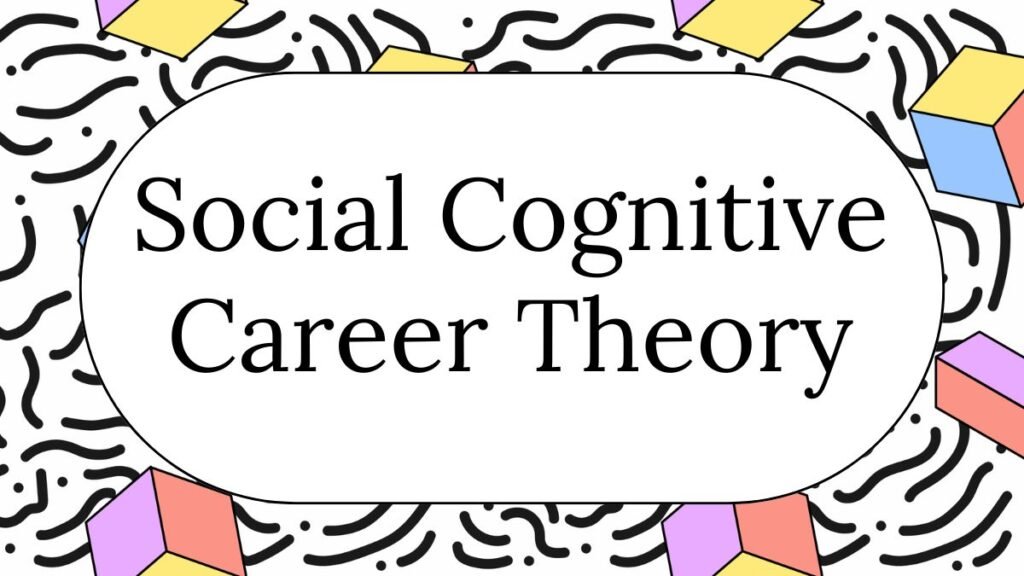As individuals, we all strive for success and fulfillment in our careers. However, navigating the complex world of career development can be daunting. This is where Social Cognitive Career Theory (SCCT) comes into play. SCCT is a powerful framework that provides insights into the various factors that influence career decision-making and development.
Understanding SCCT
SCCT is based on the idea that our career choices and actions are not solely determined by external factors, such as societal expectations or economic conditions. Instead, SCCT emphasizes the importance of personal agency and self-beliefs in shaping career development.
At the core of SCCT lies the concept of self-efficacy, which refers to an individual’s belief in their ability to succeed in specific tasks or situations. Individuals with high self-efficacy are more likely to set ambitious goals, persist in the face of challenges, and ultimately achieve career success.
The role of self-efficacy in career development
Self-efficacy plays a crucial role in career development. When individuals believe in their abilities, they are more likely to engage in proactive career behaviors, such as seeking out challenging opportunities, pursuing further education or training, and taking calculated risks.
On the other hand, low self-efficacy can lead to self-doubt, avoidance of challenging tasks, and limited career exploration. Therefore, career counselors and guidance professionals need to help individuals build and strengthen their self-efficacy beliefs through various interventions and exercises.
Impact of outcome expectations on career choices
In addition to self-efficacy, SCCT also highlights the importance of outcome expectations in career decision-making. Outcome expectations refer to an individual’s beliefs about the likely consequences of their career choices and actions. These expectations can be influenced by a variety of factors, such as personal experiences, social norms, and cultural beliefs.
Individuals with positive outcome expectations are more likely to pursue careers that align with their interests and abilities, as they believe that their efforts will lead to desirable outcomes.
On the other hand, negative outcome expectations can deter individuals from pursuing certain career paths, even if they have the necessary skills and abilities. Therefore, career counselors must help individuals develop realistic and positive outcome expectations through career counseling and guidance.

Applying SCCT assessment tools for career exploration
To effectively apply SCCT principles in career counseling and guidance, it is crucial to have access to reliable assessment tools. These tools can help individuals gain a better understanding of their self-efficacy beliefs, outcome expectations, and career interests.
For example, the Career Decision Self-Efficacy Scale (CDSE) is a widely used assessment tool that measures individuals’ confidence in their ability to make informed career decisions. Similarly, the Career Beliefs Inventory (CBI) assesses individuals’ outcome expectations and career beliefs.
Effective interventions based on SCCT principles
SCCT offers a range of effective interventions that can be used to support individuals in their career development. One such intervention is cognitive restructuring, which involves challenging and altering negative self-beliefs and thought patterns.
By helping individuals reframe their negative thoughts and replace them with more positive and empowering beliefs, career counselors can enhance self-efficacy and promote proactive career behaviors.
Another effective intervention is skills training, where individuals are provided with opportunities to develop and enhance their career-related skills. By acquiring new skills and competencies, individuals can increase their self-efficacy and expand their career options.
Case studies showcasing the success of SCCT interventions
Real-life case studies provide compelling evidence for the effectiveness of SCCT interventions in career development. For example, a study conducted by Smith and colleagues (2019) examined the impact of a career counseling program based on SCCT principles on college students’ career decision-making self-efficacy.
The results showed that the intervention significantly increased students’ self-efficacy beliefs and improved their career decision-making abilities. Similarly, a study by Johnson and Smith (2020) explored the effectiveness of a group intervention based on SCCT in improving the career outcomes of unemployed individuals.
The findings revealed that participants who received the intervention were more likely to secure employment and reported higher job satisfaction compared to those who did not receive the intervention.

Resources for implementing SCCT in career counseling
For career counselors and guidance professionals interested in implementing SCCT principles in their practice, there are various resources available. The National Career Development Association (NCDA) offers workshops, webinars, and publications that provide in-depth insights into SCCT and its applications.
Conclusion and the future of SCCT
In conclusion, Social Cognitive Career Theory (SCCT) offers a valuable framework for understanding and facilitating career development. By emphasizing the importance of personal agency, self-beliefs, and observational learning, SCCT provides valuable insights into the factors that influence career decision-making and development.
Through the use of SCCT assessment tools and effective interventions, career counselors and guidance professionals can empower individuals to take control of their career paths and unleash their full potential.


